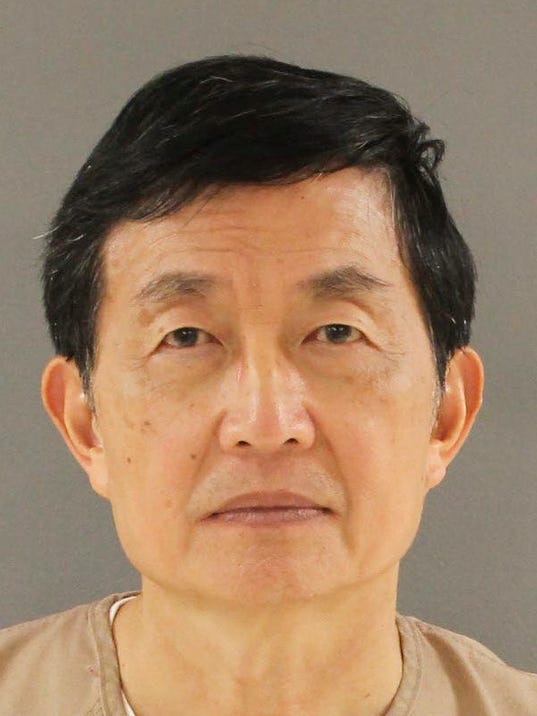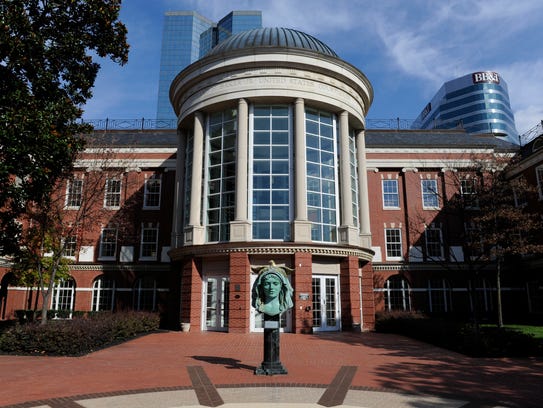By Jamie Satterfield

Szuhsiung "Allen" Ho, a confessed operative for China, faces sentencing in U.S. District Court in the Eastern District of Tennessee for buying American nuclear technology secrets for China.
An engineer working as an operative for the Chinese government in a bid to use American know-how to beef up China's nuclear program faces sentencing Wednesday in the first-of-its-kind prosecution in the nation.
Chief U.S. District Judge Tom Varlan will decide Szuhsiung "Allen" Ho’s fate at a hearing Wednesday in U.S. District Court in Knoxville for using China’s money to buy information about American nuclear power generation the country was forbidden to have.
Ho was a key catch for the U.S. intelligence community, and the case brought against him by Assistant U.S. Attorneys Charles Atchley Jr. and Bart Slabbekorn is the first of its kind involving China.
Shrouded in secrecy
Since he pleaded guilty earlier this year, he’s been honoring his side of a plea bargain negotiated by attorneys Wade Davies and Peter Zeidenberg by cooperating with the government in hopes prosecutors will recommend a shorter stint in prison than sentencing guidelines suggest.
But every document associated with Ho’s sentencing has been sealed.
His penalty range, the government’s recommendation on sentencing and the defense’s position on it are hidden under the veil of court sealing orders.
Atchley has said the Chinese government paid through Ho millions to buy American information on the production of nuclear energy – the by-product of which can be used to make nuclear weapons.
Atchley has said the Chinese government paid through Ho millions to buy American information on the production of nuclear energy – the by-product of which can be used to make nuclear weapons.
The Chinese government refuses to even acknowledge the indictment of its own nuclear power company.

Chief U.S. District Judge Thomas A. Varlan
Ho, his firm Energy Technology International, and Chinese nuclear power plant China General Nuclear Power were indicted in April 2016 in a plot to lure nuclear experts in the U.S. into providing information to allow China to develop and produce nuclear material based on American technology and below the radar of the U.S. government.
It is the first such case in the nation brought under a provision of law that regulates the sharing of U.S. nuclear technology with certain countries deemed too untrustworthy to see it.
Those countries include China.
Engineer turned informant
The investigation began at the behest of the Tennessee Valley Authority Office of the Inspector General, which contacted the FBI with concerns about one of TVA's senior executives, engineer Ching Guey, who later admitted he was paid by Ho and, by extension, the Chinese government, to supply information about nuclear power production and even traveled to China on the Chinese government's dime.
Huey agreed to cooperate in the probe.
He has since struck a plea deal.
Ho is a Taiwan native who became a naturalized U.S. citizen.
Ho is a Taiwan native who became a naturalized U.S. citizen.
Atchley has repeatedly insisted in court that the Chinese government had paid Ho millions for his spy work.
Ho worked for the Chinese government and lived in China most of the time.


The Howard H. Baker Jr. United States Courthouse.
Ho's defense team worked in plea negotiations to get into the official court record Ho's position on why he was involved in the plot.
They won.
The plea deal says Ho wanted to make money and was only trying to help speed up and make cheaper nuclear energy in China by using American technology and expertise.
Guey is set for sentencing Sept. 21.
Guey is set for sentencing Sept. 21.
There have been no sentencing documents filed in his case yet.
Aucun commentaire:
Enregistrer un commentaire